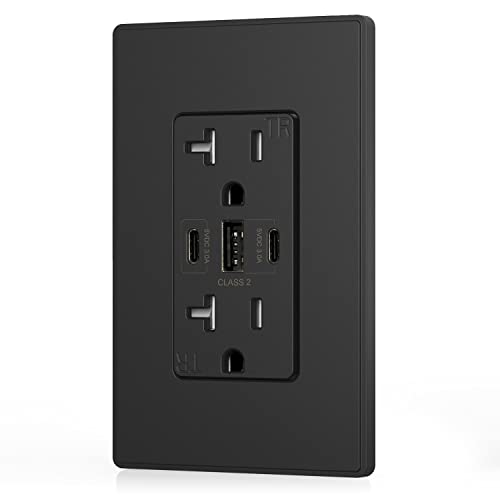Embarking on an adventure in your RV truck is an exhilarating experience, allowing you to explore the open road and discover new horizons. However, ensuring your journey is secure and stress-free requires careful preparation and adherence to safety guidelines. In this article, “Top 10 RV Truck Safety Tips: Ensuring a Secure and Stress-Free Journey,” you’ll find essential advice to help you confidently navigate the roads. From pre-trip inspections to mindful driving practices, these tips are designed to enhance your travel experience so you can focus on creating unforgettable memories without any worries.
Have you ever wondered how to make your RV truck journeys safer and more enjoyable? Whether you’re a seasoned road warrior or a new adventurer, understanding the essentials of RV truck safety can make all the difference. After all, your vehicle is not just a mode of transport but your home on wheels. Let’s dive into some crucial tips to ensure your journey is secure and stress-free.
Top 10 RV Truck Safety Tips: Ensuring a Secure and Stress-Free Journey
Understanding how to manage an RV truck is fundamental to enjoying a smooth and worry-free trip. In this guide, we’ll walk through ten essential safety tips to help you navigate the roads confidently while protecting yourself and your investment.

1. Conduct Regular Maintenance Checks
RV Truck Safety Tips. Maintenance is crucial to the longevity and safety of your RV truck. Regular check-ups prevent minor issues from becoming costly, dangerous problems.
Why It’s Important:
Regular maintenance ensures your RV truck’s systems are functioning correctly, helps prevent breakdowns, and extends the life of your vehicle.
Action Steps:
- Inspect the tires for wear and proper inflation.
- Check fluid levels, including oil, brake fluid, and coolant.
- Ensure all lights, including brake lights and indicators, are operational.
- Examine belts and hoses for cracks or wear.
- Test the battery and clean its terminals regularly.
2. Know Your Weight Limits
Understanding your RV truck’s weight limits is essential for a safe journey. Overloading can lead to dangerous situations like brake failure or tire blowouts.
Why It’s Important:
Exceeding weight limits can strain your engine, reduce fuel efficiency, and compromise your vehicle’s safety.
Action Steps:
- Know your vehicle’s Gross Vehicle Weight Rating (GVWR) and the Gross Combined Weight Rating (GCWR).
- Weigh your RV when fully loaded to ensure it doesn’t exceed these ratings.
- Distribute weight evenly to maintain balance.
3. Secure Your Load
Securing everything inside your RV truck prevents items from shifting during travel, which can be hazardous.
Why It’s Important:
Loose items can become projectiles in the event of a sudden stop or accident, causing injury or damage.
Action Steps:
- Use bungee cords or storage nets to secure loose items.
- Store heavier items on the floor and lower compartments.
- Ensure cabinets and drawers have robust latches.
4. Practice Defensive Driving
Defensive driving involves being aware of and anticipating other drivers’ actions to avoid accidents.
Why It’s Important:
RV trucks are larger and heavier, requiring longer stopping distances and different handling techniques than regular cars.
Action Steps:
- Keep a safe following distance—at least four to six seconds behind the vehicle ahead.
- Be cautious at intersections and always use signals.
- Monitor blind spots and use mirrors frequently.
- Reduce speed in adverse weather conditions.

5. Plan Your Route
Planning your route ahead of time can help you avoid narrow roads, low bridges, and other obstacles that are not RV-friendly.
Why It’s Important:
A clear, planned route reduces stress and the likelihood of encountering unsafe driving conditions.
Action Steps:
- Use RV-specific GPS systems or apps.
- Check state and local road regulations.
- Plan for fuel stops, rest areas, and overnight spots.
6. Check the Weather
Weather conditions can drastically affect driving safety. It’s crucial to be prepared for any weather scenario.
Why It’s Important:
Knowing the weather forecast helps avoid hazardous conditions such as heavy rain, snow, or high winds.
Action Steps:
- Monitor weather reports before departure and en route.
- Be prepared to delay travel if conditions are unsafe.
- Carry emergency supplies such as chains for snowy conditions.

7. Understand Your RV Truck’s Handling
Every RV truck drives differently. It’s essential to know how your specific model handles various road conditions.
Why It’s Important:
Understanding your RV truck’s handling characteristics helps you maneuver safely and comfortably.
Action Steps:
- Practice driving in various conditions.
- Know the turning radius and practice parking.
- Understand how your RV truck responds to braking and acceleration.
8. Communicate with Other Travelers
Staying in touch with other RV travelers can provide useful information and a sense of community.
Why It’s Important:
Communication can alert you to dangers, provide helpful tips, and enhance your travel experience.
Action Steps:
- Join RV travel clubs and online forums.
- Use CB radios or mobile apps to communicate on the road.
- Share your travel plans and progress with friends and family.
9. Prepare an Emergency Kit
An emergency kit is a must-have for every RV traveler and should be tailored to your needs and travel plans.
Why It’s Important:
Being prepared for emergencies can significantly affect how you handle unexpected situations.
Action Steps:
- Include first aid supplies, tools, a flashlight, batteries, and non-perishable food.
- Carry a manual or guide for basic RV repairs.
- Keep relevant contact numbers, such as roadside assistance, handy.
10. Stay Informed About RV Recalls and Safety Notifications
Keeping up-to-date with recalls and safety notifications ensures your RV truck is always in top condition.
Why It’s Important:
Addressing recalls and safety notices promptly can prevent accidents and mechanical failures.
Action Steps:
- Register your RV truck to receive recall notices.
- Regularly check the National Highway Traffic Safety Administration (NHTSA) database.
- Act quickly on any recall or safety notification.
Conclusion
Embarking on an RV adventure is one of the most exciting ways to explore and enjoy the open road. By following these top ten RV truck safety tips, you can ensure every journey is secure and stress-free. Remember, preparation and awareness are your best companions. Safe travels!
Table Summary of Key Tips:
| Tip | Importance | Action Steps |
|---|---|---|
| Conduct Regular Maintenance Checks | Prevents breakdowns and extends vehicle life | Check tires, fluids, lights, belts, hoses, and batteries regularly |
| Know Your Weight Limits | Avoids overloading, which can cause brake failure or tire blowouts | Learn GVWR and GCWR, weigh your RV fully loaded, distribute weight evenly |
| Secure Your Load | Prevents hazardous shifting of items | Use bungee cords/storage nets, store heavy items low, secure cabinets and drawers. |
| Practice Defensive Driving | Reduces accident risk through anticipation | Maintain following distance, use signals, monitor blind spots, and adjust speed for weather. |
| Plan Your Route | Avoids unsafe roads and obstacles | Use RV-specific GPS, check local regulations, plan fuel stops and rests |
| Check the Weather | Prepares for and avoids hazardous conditions | Monitor weather reports, be ready to delay travel, and carry weather-appropriate emergency supplies. |
| Understand Your RV Truck’s Handling | Ensures safe maneuvering | Practice driving and know turning radius and braking/acceleration characteristics. |
| Communicate with Other Travelers | Gains valuable information and community support | Join travel clubs/forums, use CB radios/mobile apps, share travel plans |
| Prepare an Emergency Kit | Ready for unexpected situations | Stock with first aid, tools, flashlight, food, repair manual, and contact numbers |
| Stay Informed About Recalls and Safety Notifications | Keeps your RV in top condition | Register for recall notices, check the NHTSA database, and promptly act on recall or safety notifications. |
Exploring the open road in your RV truck can be one of the most rewarding experiences. With these tips in mind, you’re set to ensure that each journey is safe but also fantastic and memorable. Happy travels!













